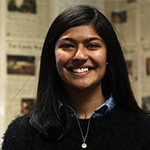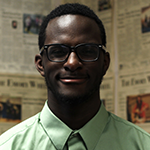[vc_row][vc_column][vc_custom_heading text=”Endorsements 2016 ” font_container=”tag:h2|font_size:60|text_align:center” use_theme_fonts=”yes”][vc_column_text]
The Emory Wheel’s Endorsement Committee was made up of 12 members of the Editorial Board. They conducted individual interviews with the candidates and coordinated the Wheel Debates. All endorsements/no confidence decisions were made based on the opinion of at least 80 percent of the Committee. The members of the Committee were: Zak Hudak, Julia Munslow, Elana Cates, Sam Budnyk, Hagar Elsayed, Alisha Compton, Hannah Conway, Ruth Reyes, Avery Yang, Michelle Lou, Benazir Wehelie and Dustin Slade.
[/vc_column_text][ultimate_spacer height=”10″][/vc_column][/vc_row][vc_row][vc_column][vc_single_image image=”21982″ img_size=”full” alignment=”center”][/vc_column][/vc_row][vc_row][vc_column width=”1/4″][ultimate_spacer height=”10″][/vc_column][vc_column width=”1/2″][ultimate_heading main_heading=”Our Pick: Max Zoberman”]
[/ultimate_heading][vc_column_text] The Wheel’s Endorsement Committee unanimously endorses College junior Max Zoberman for Student Government Association (SGA) President. His combination of experience within the organization and a demonstrated ability to plan concrete initiatives make him the only qualified candidate.
The Wheel’s Endorsement Committee unanimously endorses College junior Max Zoberman for Student Government Association (SGA) President. His combination of experience within the organization and a demonstrated ability to plan concrete initiatives make him the only qualified candidate.
Zoberman, who is currently SGA executive vice president, has in his presidential platform highlighted the physical and mental safety of students at Emory as “the single most important prerequisite for an effective university.” This is an overarching goal with which the Committee wholeheartedly agrees.
Zoberman took a strong stance in his platform, writing that, “Emory can and should be the first university in the country to be able to say that we are free of the specter of sexual violence on our campus.” He has actively pursued this goal, he said in his Committee interview, through communication with representatives from the White House representatives regarding the prospect of making Emory an official partner with the “It’s On Us” campaign.
We do, however, feel some unease toward Zoberman’s undeniable status as a politician — he told us that his campaign team was made up of 20 students. Despite this, we cannot fault a candidate for taking his or her job too seriously. After all, we should and do ask for our student leaders to be fully committed to their roles. Zoberman told us both that he has learned the importance of prioritizing his duties during his time as SGA EVP, and that he has planned his senior year schedule in a way that he would be able make his duties as president paramount.
While Zoberman consistently uses buzz words such as “transparency” and “equity” in his platform, during his interview with the Wheel and at the Wheel Debates, he offered concrete means by which to move towards a more transparent SGA and a more comfortable and represented community.
For instance, Zoberman has visited the Oxford campus nearly weekly since being elected SGA EVP, creating a point of contact through which cross-campus programming has been made possible, he said.
Additionally, he has taken transparency initiatives within SGA a step further, already having begun to work towards a third-party polling organization that would in theory create a more stable system of checks and balances between students and their governing body.
Zoberman’s opposition, Business School sophomore Daniel Rodriguez, who has no prior experience on SGA, is running largely on a platform of finding ways to bring various campus cultural groups together. Although the Committee values the ability of newcomers to run for positions within student government, we acknowledge that SGA initiatives can take as long as three years to pass; the recently implemented upfront budgeting system for student organizations, for instance, has been in the works since the 48th SGA, two years ago. In the Committee’s interview with Rodriguez, it was clear that he had not yet found, let alone analyzed, the recent workings of SGA outside of his own discontent toward the organization’s accomplishments.
We place unequaled importance on freedom of speech and were concerned with Zoberman’s proposed resolution last year to fully ban Yik Yak from Emory’s Wi-Fi, a position for which he was vehemently attacked at the time. However, when asked if he would make a similar push as SGA president, Zoberman credited the experience as one of the most important of his SGA career: “I learned a hard lesson … to affect positive change, you need to aggravate interest first.”
For the aforementioned reasons, the Committee has decided that Zoberman is not only the most qualified candidate for SGA president, he is the only qualified candidate.
[/vc_column_text][ultimate_spacer height=”30″][/vc_column][vc_column width=”1/4″][ultimate_spacer height=”10″][/vc_column][/vc_row][vc_row][vc_column][vc_single_image image=”21974″ img_size=”full” alignment=”center”][/vc_column][/vc_row][vc_row][vc_column width=”1/4″][ultimate_spacer height=”10″][/vc_column][vc_column width=”1/2″][ultimate_heading main_heading=”Our Pick: Gurbani Singh”]
[/ultimate_heading][vc_column_text]
The Wheel’s Endorsement Committee unanimously endorses College sophomore Gurbani Singh for SGA executive vice president because of her demonstrated commitment, qualifications, enthusiasm and charisma.
In her two years in SGA, Singh has developed strong relationships with other members that will help her accomplish SGA’s goals and initiatives. She has also developed a particularly important relationship with SGA presidential candidate Max Zoberman, of whom the Committee also unanimously supports. Zoberman and Singh have similar objectives and, if both elected, could work together to see their initiatives through.
As SGA’s first-year representative last year and as a representative-at-large this year, Singh has the necessary experience to serve as SGA EVP. She understands what is required of the organization’s EVP, and this furthers our expectations of cooperation between her and the rest of SGA. As tradition shows, the SGA executive vice presidency often goes hand-in-hand with the presidency the following year.
Singh’s platform outlines the main issues she would like to establish: transparency, inclusion, safety and transportation, academics and dining. Transparency has historically been an issue for SGA, as the organization has struggled to remain on the same page as the students it represents. We applaud Singh for her dedication to opening the conversation between SGA and students with initiatives such as promoting the fact that the organization’s meetings are open to all students.
Singh also emphasized the need for inclusion, and plans to continue meeting with the diverse organizations on Emory’s campus, such as the Black Student Alliance (BSA), Indian Cultural Exchange (ICE), Latino Student Organization (LSO) and the transgender community in order to create a safer environment for everyone. We agree with Singh that safety on campus is a top priority, and recognize her enthusiasm to expand the SafeRide program and fully implement a “Buddy Walkers” system, in which students would be trained and paid through work study to walk fellow students to places when they feel unsafe.
Singh agrees with Zoberman on the need to extend the duration of the Add/Drop/Swap period and of reading periods before exams, and ensures this would be a primary initiative of the next SGA if the two were elected.
We further agree with Singh’s proposal to investigate cheaper dining options.
Singh’s emphasis on tangible ideas for change and future goals for Emory and SGA give us the utmost confidence in endorsing her for the position of SGA EVP.[/vc_column_text][ultimate_spacer height=”30″][/vc_column][vc_column width=”1/4″][ultimate_spacer height=”10″][/vc_column][/vc_row][vc_row][vc_column][vc_single_image image=”21975″ img_size=”full” alignment=”center”][/vc_column][/vc_row][vc_row][vc_column width=”1/4″][ultimate_spacer height=”10″][/vc_column][vc_column width=”1/2″][ultimate_heading main_heading=”Our Pick: No Confidence”]
[/ultimate_heading][vc_column_text]Due to her lack of achievable initiatives, passion and innovation, the Wheel’s Endorsement Committee unanimously voted “no confidence” in College junior Molly Zhu for the position of College Council (CC) president.
Zhu, who is running unopposed, is serving her third year on CC, currently as chief of staff. She previously served as a sophomore legislator and as a freshman legislator.
While Zhu has experience in CC and we applaud her goals of transparency, equity and inclusion, her platform lacks the specific, concrete steps necessary to bring about tangible change. Zhu has no opponent and seemed to take her potential appointment as CC president for granted; she was ill-prepared for both the Wheel’s interview and the Wheel Debates, merely parroting buzzwords such as “transparency,” “inclusion” and “equity.” Though she hopes to accomplish initiatives such as “strengthening the liaison system between CC and chartered organizations,” she did not define specific actions to achieve these goals.
Zhu seemed to lack the passion that all other candidates possessed in her platform, interview with the Endorsement Committee and performance in the Wheel Debates. For instance, in Zhu’s platform, she states she will “present a willingness” to initiate conversations with all organizations on campus. This claim is worrisome, as it suggests that Zhu desires only to appear willing to engage with these groups instead of genuinely caring about creating equity between organizations. We believe that holding a CC presidential position requires a genuine passion for moving CC initiatives forward.
Zhu also lacks the innovation and initiative necessary for a successful CC president. In the Wheel Debates, she stated that she does not believe that CC’s funding of student organizations in the last year is problematic or that she can do anything to change it, despite the fact that nearly half of the available funding was given to 12 of the 129 organizations that CC funded last year. She also stated that she cannot control which clubs approach CC for funding. Moreover, although Zhu plans to create a forum of class syllabi as CC president, CC already attempted to put a course syllabi and class comments forum in place via Blackboard in October 2014, an initiative with which Zhu was involved as a CC sophomore legislator.
Zhu has demonstrated a lack of initiative, passion and ability to create innovative, achievable goals. While her platform states that she will “lead Emory into a new era,” we believe that Zhu could only lead CC into an era characterized by the current status quo and without any tangible progress or change. [/vc_column_text][ultimate_spacer height=”30″][/vc_column][vc_column width=”1/4″][ultimate_spacer height=”10″][/vc_column][/vc_row][vc_row][vc_column][vc_single_image image=”21976″ img_size=”full” alignment=”center”][/vc_column][/vc_row][vc_row][vc_column width=”1/4″][ultimate_spacer height=”10″][/vc_column][vc_column width=”1/2″][ultimate_heading main_heading=”Our Pick: Dennis Kamara”]
[/ultimate_heading][vc_column_text]
 The Wheel’s Endorsement Committee stands behind College junior Dennis Kamara for College Council (CC) vice president. Kamara has demonstrated a passion for affecting change on campus, particularly for marginalized groups, and we believe that he will be able to leverage his newcomer status to disrupt the same-old, same-old of CC’s bureaucracy, which has primarily been the domain of those in Greek Life.
The Wheel’s Endorsement Committee stands behind College junior Dennis Kamara for College Council (CC) vice president. Kamara has demonstrated a passion for affecting change on campus, particularly for marginalized groups, and we believe that he will be able to leverage his newcomer status to disrupt the same-old, same-old of CC’s bureaucracy, which has primarily been the domain of those in Greek Life.
Kamara, who recently became a senior legislator in the CC, is involved in both leadership and membership roles throughout campus, acting as a Sophomore Adviser (SA) and then a Residence Adviser (RA) in Residence Life, a member of Emory’s Black Student Association (BSA), a staff member of Volunteer Emory and a marketing and programming associate with Emory Entrepreneurship and Venture Management (EEVM). He knows the campus and the needs and demands of its student organizations that CC most needs to serve.
Although he would have had only one semester’s worth of CC experience, Kamara has developed the necessary skills to serve in a leadership position through his other extracurricular activities. Furthermore, he has committed himself to learning how the organization functions by carefully studying the CC’s rules. In his current position as a senior legislator, he has taken the initiative to attend numerous College Council-hosted events, including Chipotle Chats, and has traveled to the Oxford campus in order to assess the unique needs of its students.
The opposing candidate, College sophomore Cassidy Schwartz, has been involved in CC since her freshman year and is quite qualified for the position of vice president, but she also represents a continuation of a pre-established CC hierarchy. Kamara, soon-to-be a senior, would not be bound by the desire to secure support for a CC presidential campaign, a luxury Schwartz does not share. He could do anything within the confines of his position to reform the recruitment and outreach of the organization without fear of future conflict.
Kamara represents a needed change to reinvigorate College Council, and we have confidence that he would make the organization more transparent and more responsive to the needs of our community if elected vice president.[/vc_column_text][ultimate_spacer height=”30″][/vc_column][vc_column width=”1/4″][ultimate_spacer height=”10″][/vc_column][/vc_row][vc_row][vc_column][vc_single_image image=”21977″ img_size=”full” alignment=”center”][/vc_column][/vc_row][vc_row][vc_column width=”1/4″][ultimate_spacer height=”10″][/vc_column][vc_column width=”1/2″][ultimate_heading main_heading=”Our Pick: Ria Sabnis”]
[/ultimate_heading][vc_column_text] The Wheel’s Endorsement Committee unanimously endorses Business School junior Ria Sabnis for the position of Student Programming Council (SPC) president due to her experience, passion and initiative to create more transparency and less homogeneity in SPC.
The Wheel’s Endorsement Committee unanimously endorses Business School junior Ria Sabnis for the position of Student Programming Council (SPC) president due to her experience, passion and initiative to create more transparency and less homogeneity in SPC.
We believe that prior experience is necessary in any candidate, and while both Sabnis and her opponent, B-School junior Marisa Hann, have experience on SPC and are qualified to be president, Sabnis’ work demonstrates that she possesses traits essential for an SPC president. Sabnis has been a member of SPC since her freshman year, and is currently serving as SPC vice president. Hann, who has also served since freshman year and is currently Dooley’s Week chair, previously served in several positions, such as Taste of Emory co-chair and Homecoming chair. Sabnis stands out, however, because she launched SPC’s first Publicity Committee, an initiative that shows her innovation and leadership skills. As SPC vice president, she handles SPC’s internal affairs, from communication between current members to recruitment of new members.
SPC’s budget has historically been a point of contention on campus. We do not condone the use of unsubstantiated buzzwords, such as “transparency,” a term which is used incessantly in various campaigns across Emory’s campus, often without significant or well-reasoned initiatives. However, Sabnis’ platform of transparency, though an idea that she only explicitly mentions once, is fully substantiated. If elected, Sabnis vows to “publish an accessible and easy-to-read explanation of SGA’s funding process that SPC takes part in.” While Hann also plans to make the budget more transparent through “town halls and by developing online visual info graphics,” we feel that a published document would reach more students than a town hall event that many students might not attend. Having SPC’s budget reach the most students on campus is crucial for maintaining the integrity of the organization as it faces increasing scrutiny from the Emory community. It is therefore necessary that the organization’s next president be adept in communicating with individual students.
Sabnis’ openness towards addressing issues of homogeneity within SPC was an important factor in finalizing our decision. In the past, SPC has been criticized for the uniform, unvaried traits of its members. While both candidates acknowledged in the Wheel Debates that SPC has a predominately white, upper-middle class and Greek Life-involved makeup, Sabnis offered a more concrete plan in her platform for an overhaul of SPC’s membership than did Hann. She said that under her leadership, from the beginning of recruitment through final selection of members, “SPC [would] work harder to recruit members who reflect and represent the racial, religious and socioeconomic diversity of the entire University.” In an interview with the Committee, Sabnis also stated that we are “a university that celebrates diversity inclusion,” and that she hopes to change the way in which SPC represents the University population through “blanket programming for the entire community.” While Hann, in her interview, discussed the initiatives she has begun in order to reach out to groups underrepresented on SPC, her official platform fails to outline such measures.
Sabnis’ passion, drive, open-mindedness and experience give the Committee confidence that she is the more qualified candidate for SPC president, although neither candidate is unqualified for the position.[/vc_column_text][/vc_column][vc_column width=”1/4″][ultimate_spacer height=”10″][/vc_column][/vc_row]

